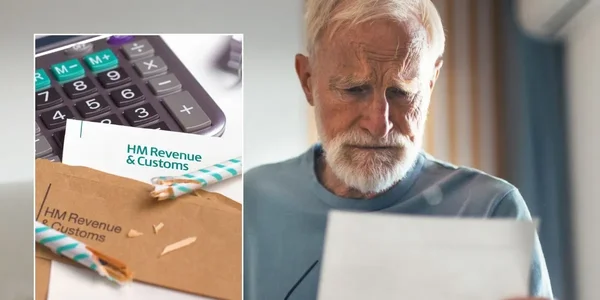What You Need to Know
Selling on eBay can be profitable, but when does HMRC start paying attention? Many UK sellers assume their eBay sales are just decluttering.
Others worry every transaction needs reporting to HMRC. However, the truth about tax on eBay sales UK sits somewhere in the middle.
In this article, we'll cover what counts as taxable income, what doesn't, and how to stay compliant with UK tax rules.
Tax on eBay Sales UK: What Counts as Income and What Doesn't?
Tax on eBay sales UK depends entirely on why you’re selling and how often you do it. Personal items sold for less than you paid don’t create any tax liability.
If you are an occasional seller who sells old stuff or unwanted items from around the house, you are generally not required to pay tax, as these are not considered business earnings.
However, regular selling activity that resembles a business becomes taxable income. Handmade items or bought-to-resell goods are usually taxable from the first sale.
Frequency and volume of sales matter more than individual amounts when HMRC reviews your activity. They look at your overall eBay earnings and selling pattern, not single transactions that might seem innocent.
Furthermore, the £1,000 trading allowance can protect small-scale sellers from tax bills entirely. This annual threshold acts as a safety net for casual sellers and is a specific HMRC rule. Understanding these rules is important for compliance.
If your selling activity goes beyond that of an occasional seller and starts to resemble e commerce, you may need to pay tax and follow the rules set by government authorities.
If your activity is business-like and you regularly sells items for profit, you are responsible for paying tax on your eBay earnings.

Types of Taxable Income on eBay
When you sell on eBay, it’s important to know which types of income might be taxed in the UK. Most eBay sellers will need to pay income tax on profits made from selling goods or services, especially if you’re running your eBay activity as a business or side hustle. This means that any money you make after deducting allowable expenses from your eBay sales counts as taxable income.
If you sell personal assets—like collectibles, antiques, or other valuable items—for more than you originally bought them, you might also need to pay capital gains tax on the profit. For those running a larger operation, if your eBay business is set up as a limited company, you’ll need to pay corporation tax on your profits.
When Are Your eBay Sales Just Personal Disposals?
Clearing out your wardrobe, books, old stuff, or unwanted items from around the house rarely creates tax issues. You’re selling items you originally bought for personal use, not profit, and such sales are typically considered a personal disposal.
If you are an occasional seller who sells infrequently with no intention to make money, you are unlikely to trigger a tax liability. Additionally, items sold for less than their original purchase price are clearly personal disposals.
You’re not systematically buying things specifically to resell them later. Long gaps between selling different types of items suggest personal clearing rather than trading.
Take my neighbour Sarah, who sells her old stuff and unwanted items, like her old iPhone and some designer handbags, after a house move. Since she made losses on everything and hadn’t bought them to resell, HMRC wouldn’t be interested.

How Does HMRC Decide if You're Trading or Not?
They examine how often you buy and sell similar items within short timeframes, following HMRC's rules for determining whether your activity counts as trading. Whether you have specialist knowledge in certain products makes a difference too.
If you’re actively sourcing stock to resell, that’s clearly trading behaviour. If your activity meets the rule for trading, you may need to pay tax on your earnings. The time gap between buying and selling items tells them your real intentions.
Whether you’re improving items before sale shows business-like thinking. Furthermore, your overall approach and whether it resembles normal business behaviour matters most.
HMRC uses these factors together to build a complete picture. No single element determines the outcome on its own. These rules are especially important for those engaging in e commerce or regular online selling.
Capital Gains Tax on eBay Sales
Capital gains tax can come into play when you sell personal assets on eBay for more than you originally paid. For example, if you sell a rare collectible or a piece of art and make a profit, you may need to pay capital gains tax on the gain.
However, there are some helpful exemptions: if you sell personal possessions for less than £6,000, you usually won’t need to pay capital gains tax. Occasional sellers who are simply getting rid of unwanted clothes or household items are generally not affected, especially if the items are sold for less than their original purchase price.

What About the £1,000 Trading Allowance?
This covers all trading income, not just eBay sales from your account. Your eBay earnings, along with other trading earnings, count towards the £1,000 tax-free trading allowance each year.
It includes income from other platforms like Vinted, Facebook Marketplace, or Depop. You choose between using the allowance or claiming your actual business expenses. If your earnings exceed the threshold, you will need to pay tax according to HMRC rules.
However, the allowance doesn’t apply to employment income or rental property profits. Keep records even if you’re under the threshold - HMRC might ask questions later.
Many sellers find this allowance gives them breathing room to test the waters. It’s particularly useful for those unsure whether their selling constitutes trading under HMRC rules.
VAT Registration for eBay Sellers
If your eBay sales and other business income push your taxable turnover above £85,000 in a 12-month period, you’ll need to register for VAT with HMRC. Once you’re VAT registered, you must collect VAT on your sales and pay it to the tax authorities, which means adding value added tax to your eBay prices and issuing VAT invoices to buyers when required.
Being VAT registered also allows you to reclaim VAT on eligible business expenses, such as eBay insertion fees, shipping costs, and other services related to your selling activities. Accurate record-keeping is crucial, as you’ll need to submit a self assessment tax return or VAT return each period, showing the VAT you’ve collected and paid. This applies whether you’re a sole trader, limited company, or another legal entity.
If you’re selling online and your business is growing, keep a close eye on your turnover to avoid missing the VAT registration deadline. Failing to register on time can result in penalties and backdated VAT bills. Make sure you’re charging the correct amount of VAT, keeping all receipts and invoices, and staying up to date with your assessment tax return obligations.

eBay Fees and Charges: What You Can and Can’t Deduct
Running an eBay business comes with a range of fees and charges, from insertion fees and final value fees to postage and packaging costs. The good news is that many of these expenses can be deducted from your taxable income, helping to reduce your overall tax bill. For example, you can claim eBay selling fees, postage costs, packaging materials, and even certain advertising expenses as business costs on your self assessment tax return.
However, not every payment you make is deductible. You can’t claim back income tax or national insurance contributions as business expenses. It’s also important to separate personal expenses from business ones—only costs directly related to your eBay sales count. If you’re a limited company or self employed, keeping clear records of all your fees, sales, and expenses is essential for paying the correct amount of tax and staying compliant with UK tax law.
If you’re unsure about what you can and can’t deduct, or want to make sure you’re claiming everything you’re entitled to, consider seeking professional advice from an accountant. This can help you maximise your profits, stay tax efficient, and avoid any issues with HMRC down the line.
What Records Should eBay Sellers Keep?
Purchase receipts for all items you buy with reselling in mind are essential. Screenshots of your eBay listings and final sale prices prove your actual income.
PayPal or bank statements showing payments received provide the money trail. Any business expenses like packaging materials, eBay fees, postage costs, or charges listed on your seller invoice—including goods and services tax (GST) or services tax—count. Be sure to keep copies of your seller invoice to track these costs accurately.
Photos of items before and after any improvements show your business activities. Additionally, a simple spreadsheet tracking purchases, sales, and profit keeps everything organised perfectly.
Good record-keeping protects you during HMRC enquiries and maximises your allowable expenses. This is especially important for e commerce businesses, where multiple fees and taxes may apply. Start organising from day one rather than scrambling later.

Understanding the Trading vs Personal Sale Distinction
The line between personal sales and trading isn’t always crystal clear. HMRC has specific rules to distinguish between an occasional seller and a trader, looking at the bigger picture rather than individual transactions.
Someone selling vintage watches monthly after researching market prices looks like a trader. However, someone clearing deceased relatives’ possessions appears to be making personal disposals as an occasional seller. HMRC considers your overall earnings, frequency, and intent when making this distinction.
Your intentions matter, but so does your behaviour pattern. Consistent profit-seeking activity will likely be viewed as trading under HMRC rules.
If you’re genuinely unsure, keeping detailed records helps demonstrate your true position. This evidence becomes crucial if questions arise later.
Common Mistakes eBay Sellers Make
Many sellers assume the £1,000 allowance means they’re completely exempt from record-keeping. However, misunderstanding the rules about what records must be kept is a common mistake. You still need evidence to support your position.
Others mix personal sales with genuine trading without separating the two activities. This creates confusion and potential tax complications down the line.
Some sellers think only profit matters, ignoring gross sales figures. Sellers sometimes overlook reporting their total earnings, not just profit, which can lead to issues with HMRC. Additionally, forgetting to include selling fees and expenses reduces your taxable profit unnecessarily.
The biggest mistake is assuming HMRC won’t notice small-scale online selling. Digital footprints make detection increasingly likely.

Getting Your eBay Tax Right
Understanding tax on eBay sales UK doesn't have to feel overwhelming or scary. Most casual sellers won't owe any tax on their occasional personal sales.
However, if you're buying items specifically to resell, HMRC will want their share. Getting ahead of your obligations prevents nasty surprises later.
Pie is the UK's first personal tax app, helping working individuals handle their tax responsibilities easily. It's the only self assessment solution offering integrated bookkeeping, real-time tax calculations, simplified return processing, and expert advice when you need it.
Take control of your eBay selling taxes with Pie.tax today.











